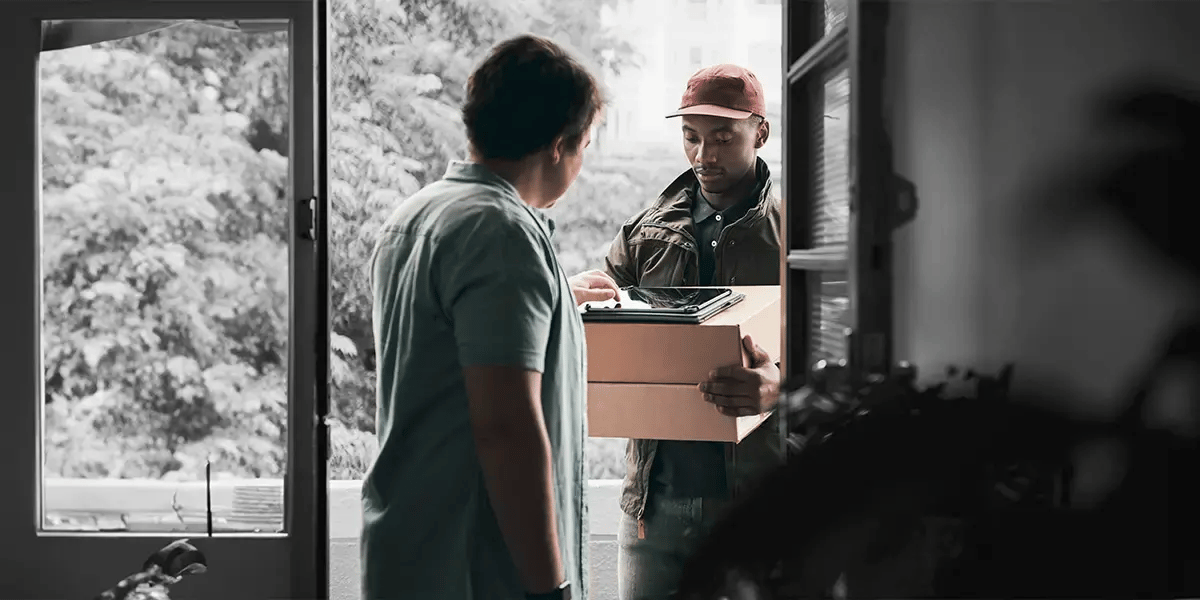
The right ecommerce last mile delivery management approach helps retailers and webshops retain customers and increase revenues.
Efficient and reliable delivery management is crucial if retailers, webshops, and other businesses are to retain customers and grow. To succeed in the highly competitive delivery market, businesses must prioritize key factors that contribute to a seamless last mile delivery experience. Here are ten essential elements for achieving delivery success, enabling businesses to meet customer demands effectively.
1. Reliable Delivery Management Software
Investing in robust delivery management software is essential for optimizing operations and ensuring efficient order processing. Such software helps streamline delivery routes, track packages in real-time, and manage logistics operations effectively. By leveraging reliable technology solutions, businesses can enhance overall efficiency, reduce errors, and improve customer satisfaction.
2. Efficient Logistics Network with Strategically Located Centers
Building an efficient last mile logistics network is crucial for timely and cost-effective deliveries. Businesses can minimize transportation costs and optimize delivery routes by strategically locating distribution centers throughout your region. This ensures that products reach customers quickly and in pristine condition.
3. Optimal Fleet and Vehicle Management
Maintaining an optimal fleet and effectively managing vehicle operations is vital for successful delivery services. By regularly servicing vehicles, monitoring fuel consumption, and using advanced routing systems, businesses can minimize downtime, reduce operational costs, and improve overall efficiency.
4. Low-Emissions Deliveries and Sustainability
In an era where environmental consciousness is growing, prioritising low-emissions deliveries and sustainability practices can significantly enhance your brand's reputation and appeal to customers. Exploring eco-friendly vehicle options, such as electric or hybrid vehicles, helps reduce carbon emissions and contributes to a greener future. Additionally, implementing efficient route planning systems that minimize fuel consumption and optimize delivery schedules can further reduce environmental impact.
5. Seamless Integration with E-commerce Platforms:
In today's digital age, seamless integration with e-commerce platforms is crucial for efficient order management. By integrating their delivery systems with popular online marketplaces and e-commerce platforms, businesses can automate order processing, reduce errors, and improve overall customer experience.
6. Excellent Customer Communication
Transparent and proactive communication with customers is key to building trust and satisfaction. Keeping customers informed about order status, delivery updates, and any potential delays through SMS notifications, email alerts, or dedicated customer service channels ensures a positive delivery experience and minimizes customer inquiries.
7. Transparent and Flexible Delivery Options
Offering customers transparent and flexible delivery options enhances their experience and sets businesses apart from the competition. Providing choices such as same-day delivery, time-slot selection, and alternative pickup locations empowers customers and caters to their diverse needs.
8. Focus on Customer Experience
Prioritising the customer experience throughout the delivery process is paramount. By consistently exceeding customer expectations, providing personalised services, and resolving issues promptly, businesses can foster loyalty and gain a competitive edge in your delivery market.
9. Data Analytics and Continuous Improvement
Leveraging data analytics allows businesses to gain valuable insights into delivery operations and customer behaviour. By analysing key metrics such as delivery times, customer feedback, and delivery success rates, companies can identify areas for improvement and make data-driven decisions to enhance their delivery services continually.
10. Compliance with Regulations
To ensure successful delivery operations, businesses must stay compliant with relevant regulations in your market. This includes adhering to safety standards, data protection laws, and any local delivery regulations. Staying updated on regulatory changes and actively working to maintain compliance will help businesses avoid legal issues and build trust with customers.
Succeeding with delivery requires a holistic approach that considers not only operational efficiency and customer satisfaction but also environmental sustainability. By focusing on these key factors, businesses can establish a strong foundation for successful last mile delivery.
About the author





